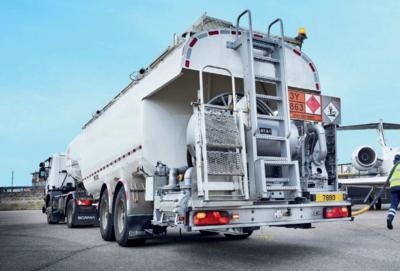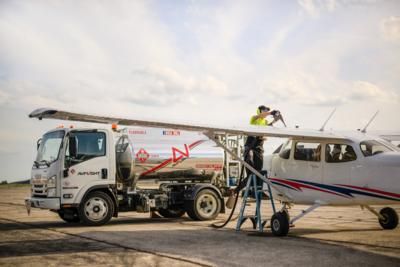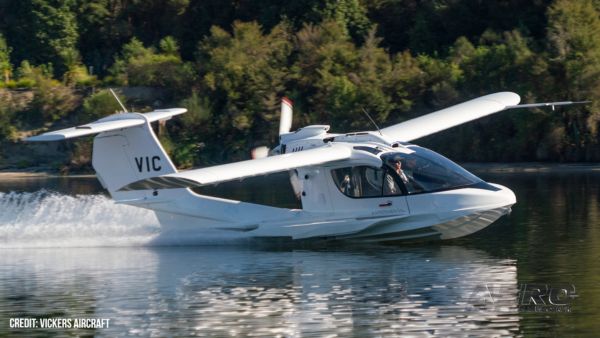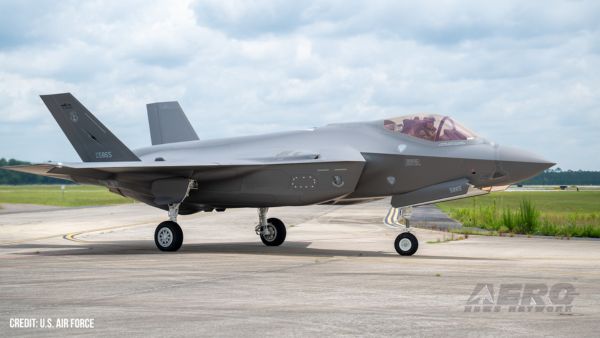Sat, Sep 17, 2022
Recent Developments in Lead-Free Fuel Brings Unique Considerations for Avgas Providers
The National Air Transportation Association has released a white paper regarding recent developments in unleaded avgas following the STC approval for General Aviation Modifications Inc’s. (GAMI) G100UL.

The Association's GA Fuel Subcommittee brought together a range of industry minds to create recommended best practices for the deployment of the unleaded fuel. The group threw its support behind the Eliminate Aviation Gasoline Lead Emissions (EAGLE) Initiative’s goal of an entirely lead-free general aviation ecosystem by 2031. Until now, the industry lacked a real, easily scaled, 100LL replacement that would require a minimum of infrastructure and provide maximum interoperability to ensure industry-wide takeup of the new tech. The FAA’s recent issuance of Supplemental Type Certificates approving the use of GAMI’s 100 octane unleaded avgas product, G100UL, in all spark-ignition piston aircraft and engines in the general aviation fleet turns that industry gap on its head. Now, a large plurality of aircraft can easily begin using unleaded avgas, with minimal fuss compared to some previous solutions that required specially formulated fuels with limited market penetration. NATA notes that
this major step forward will take some work, but affirms that the launch producer for G100UL, Avfuel, will soon be joined by a handful of other companies in expanding availability. Swift Fuels, Phillips66/Afton Chemical, and Lyondell Chemical/VP-Racing are all actively pursuing approval to produce and sell GAMI's new offering.

“With the spotlight glowing ever brighter on unleaded aviation fuels, industry stakeholders have been proactively seeking information on considerations for offering more environmentally friendly fuel options,” stated NATA Managing Director of Industry and Regulatory Affairs Megan Eisenstein. “NATA is pleased to offer guidance to assist them in taking a leadership role in advancing the national effort to reduce lead emissions from piston-engine aircraft through safe and effective unleaded avgas implementation.”
The white paper assists the unleaded push by suggesting 4 key phases for those fuel providers offering the 100LL replacement. Those phases - Discovery, Preliminary Communications, Infrastructure Considerations, and Final Communications - will help delineate efforts as stakeholders look to spread awareness and ease their area into safe and effective unleaded fuel use.
“It is critical to have a misfueling prevention program in place, and to implement comprehensive management of change processes and perform risk assessments when introducing new fuels,” said Steve Berry, NATA Managing Director of Safety and Training. “Keeping lines of communication open between pilots and FBOs throughout the fueling process is also essential.” NATA reminds the industry of its Safety 1st program, as well as its soon-to-be-updated programs to prevent misfueling.
More News
“We have seen astounding demand for the G800, and the entire Gulfstream team is excited to begin making deliveries to our customers. The G800 is entering service with extraor>[...]
Aero Linx: Recreational Aviation Australia (RAAus) Recreational Aviation Australia is progressively working towards improving safety outcomes through a holistic approach to safety >[...]
Classic Klyde Morris From 11.07.16 (and Remembering Bob...) FMI: www.klydemorris.com>[...]
Also: GADFLY AI-Driven Engine Analysis, Knockoff Iranian Drones, Russian Surveillance, 40 NASA Missions Chopped This year’s Zenith Homecoming event will soon be taking off at>[...]
Also: H55 Completes American Tour, Robinson Trade-Ins, Retired AV-8B Harrier, NS-35 Mission Organizers of the iconic annual Air Race Classic will soon be opening registration for t>[...]
 Aero-News: Quote of the Day (08.28.25)
Aero-News: Quote of the Day (08.28.25) ANN's Daily Aero-Linx (08.28.25)
ANN's Daily Aero-Linx (08.28.25) Classic Klyde Morris (08.25.25)
Classic Klyde Morris (08.25.25) Airborne 08.25.25: Zenith Homecoming, VP Racing, Affordable Flying Expo 2025
Airborne 08.25.25: Zenith Homecoming, VP Racing, Affordable Flying Expo 2025 Airborne 08.22.25: ARC Spinoff, Nat'l Championship Air Races, Hawkins Accident
Airborne 08.22.25: ARC Spinoff, Nat'l Championship Air Races, Hawkins Accident




